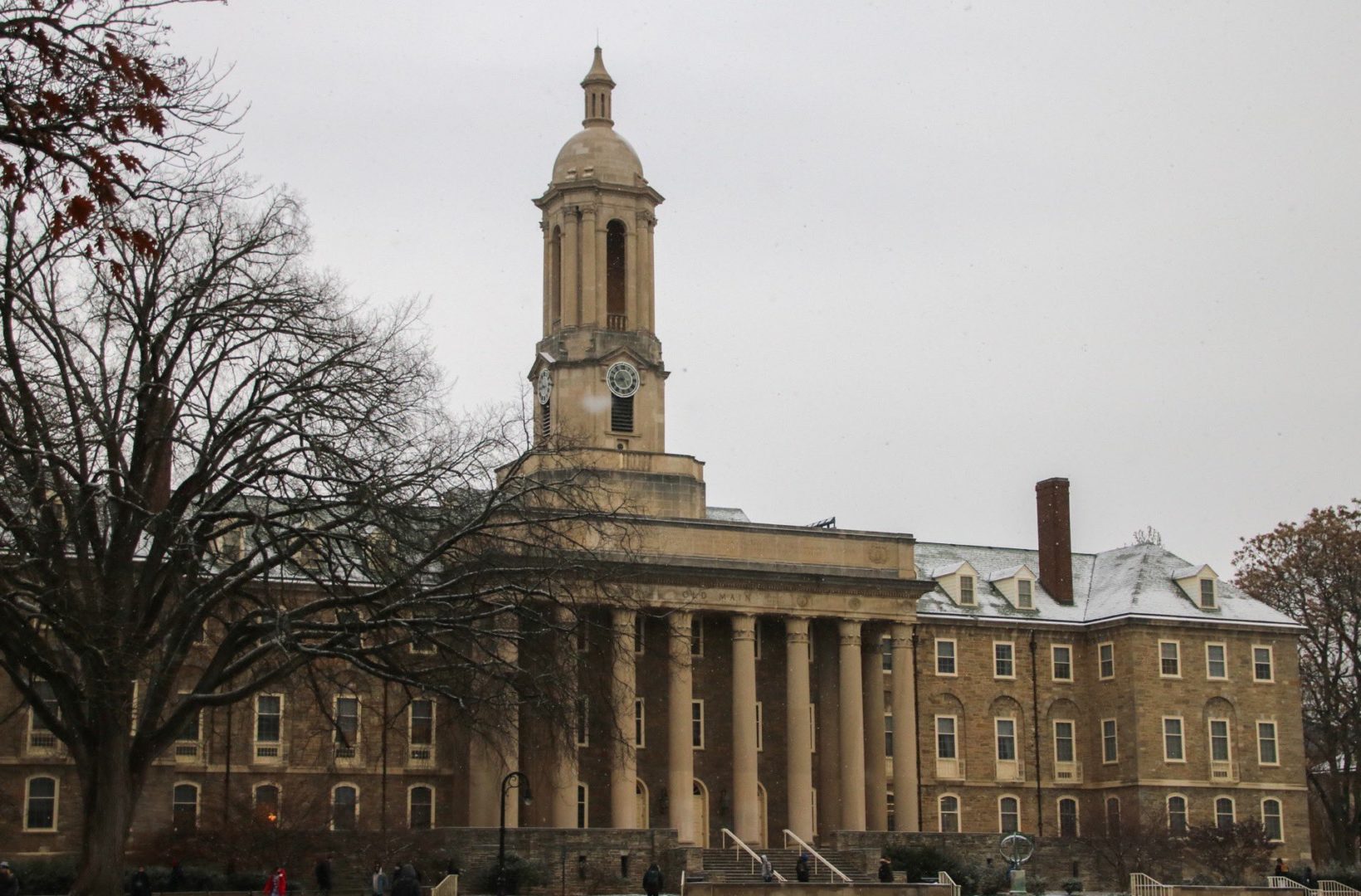New Pennsylvania Gov. Josh Shapiro unveiled his first budget proposal on Tuesday, and it includes a 7.1%, or $17.2 million, increase in Penn State’s general support appropriation.
The boost to Penn State’s funding from the commonwealth to support core teaching costs and offset tuition for Pennsylvania students would fall well short of the university’s historic request for a 47.6%, or $115.2 million increase.
Nevertheless, university President Neeli Bendapudi said in a statement that she was grateful for the governor’s proposed increase, which would take Penn State’s general support appropriation from $242.1 million to $259.3 million.
“We are very appreciative that Gov. Shapiro has proposed to increase Penn State’s funding for the next fiscal year, particularly after three consecutive years of flat funding for our general support appropriation,” Bendapudi said. “From keeping tuition costs lower for in-state students, to serving as a repository of knowledge and research-based problem-solving for the state’s agriculture industry, to driving economic development and preparing the state’s next generation of entrepreneurs, workers and leaders, the commonwealth’s investment in Penn State impacts the lives of all Pennsylvanians.”
The university submitted its formal funding request in the fall as university officials grappled with a nearly $200 million operating deficit and stagnant state funding, which they said made it necessary to raise tuition for the second consecutive year. The state funding request for 2023-24 — the largest ask in school history — was designed to put Penn State students “on equal financial footing” with those at Pennsylvania’s other public universities.
Penn State’s funding on a per-student basis is lower than other universities throughout the commonwealth. The university estimated its state funding covers about $5,600 in support per Pennsylvania undergraduate, substantially less than Temple ($8,275), the Pennsylvania State System of Higher Education ($8,378) and Pitt ($9,049). The 47.6% increase would put Penn State on par with Temple.
“We understand that available funding is limited, and we sincerely appreciate the proposed increase, but closing the per-student funding disparity that exists between Penn State and the other public universities in Pennsylvania remains a priority, as it is critical to our students’ success and to our long-term ability to provide all Pennsylvanians with affordable access to a world-class education,” Zack Moore, Penn State vice president for Government and Community Relations, said. “As Pennsylvania’s flagship public research university and the state’s only land-grant institution, it is a matter of fairness that our students are funded at the same levels as their peers.”
It’s a long road ahead before Penn State’s appropriation — or any of the state budget — is decided. Shapiro, the first-term Democratic governor, delivered what he called a “commonsense” budget and he’ll have to work with a politically divided General Assembly on a final product before the June 30 deadline.
In his final budget proposal last year, Gov. Tom Wolf proposed a 5%, or $12.1 million, increase for Penn State, but the budget kept the university’s general support funding flat for a third consecutive year. Later that month, however, Wolf directed $40 million in one-time federal stimulus funds to Pennsylvania’s four state-related universities, including the $12.1 million to match his budget proposal for Penn State.
Bendapudi, meanwhile, will make her pitch to and answer questions from state legislators later this month when she appears before the House and Senate appropriations committees on March 21 and March 30, respectively.
“This is the beginning of a new partnership with the governor and his administration, and I look forward to working with him and the General Assembly in the months and years ahead to continue to address the needs of our students and strengthen Penn State’s impact on the commonwealth,” Bendapudi said.
In addition to the general support appropriation, Shapiro’s budget also proposes increases and continued funding for other aspects of the university:
• Invent Penn State, the university’s statewide entrepreneurship and economic development initiative, would receive $2.35 million, matching the commonwealth’s initial investment in the 2022-23 budget.
• Pennsylvania College of Technology in Williamsport would receive a 7.1% increase, or $1.9 million, to bring its appropriation to $28.6 million.
• Agricultural Research and Cooperative Extension would receive a 2%, or $1.2 million increase. The new funding for the programs, which do not receive any tuition dollars, would bring their total allocation to $58.9 million. The governor’s proposal did not include a university request for request for $2 million to implement an Emerging and Advanced Technology Initiative in the College of Agricultural Sciences.
• Penn State Health and the College of Medicine would receive level funding with a $15.1 million appropriation to be used for medical assistance to provide access to health care for citizens with limited financial means.



